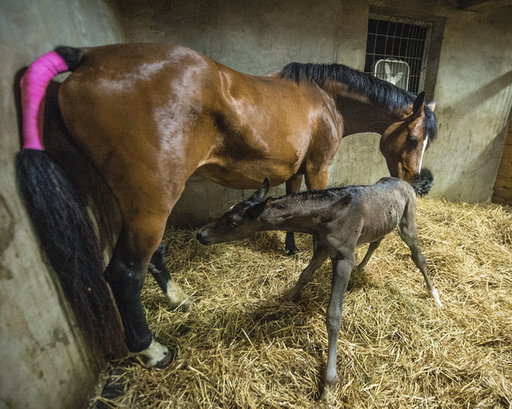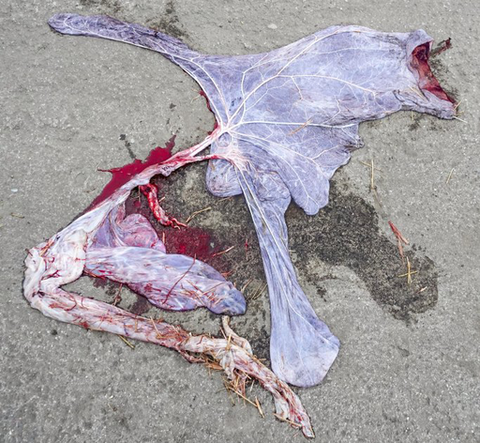
The First Few Hours after Foaling

Standing up, walking, moving and going in search of the udder: a foal will do all of this instinctively and is pre-programmed to do this. After about 30 minutes, the foal will try to stand up. Within 2 hours, the foal will start to walk and will go in search of the udder to drink. In most cases, the foal will get there perfectly on its own without your interference. Leave your mare and foal in peace and give them time to sort themselves out together. This is essential for their bonding too. Here too, as long as there is continuous progress, all will be fine. If your foal continues to lie down, is not alert or is ignored by its mum, then contact your veterinarian.


Colostrum
It is essential for the newborn foal to get colostrum inside it as soon as possible. This milk has a high antibody content which protects the foal against infections for the first few months of its life. The foal must have had its first colostrum within two to three hours. A foal should drink some two to three litres of colostrum during the first six to eight hours after birth. A healthy foal will nurse several times per hour. If you notice that the udder remains too full, it may be a sign that the foal is drinking too little.
The time scale is important, as the foal's intestines are permeable to these vital antibodies for the first twelve hours after birth. During the following twelve hours, this absorption is already reduced and will have stopped completely after 24 hours.
Tip!
Do you want to give your foal a flying start? Then give the immune paste Pavo KickStart. By giving two syringes of Pavo Kickstart in the first 24 hours after birth, you give your foal's immunity a quick and easy boost.

When in doubt, always call!
If your foal fails to stand up in time or you are not sure whether it is drinking enough, then phone your veterinarian. You may help the mare by milking her and test the foal's suckling reflex by checking that the foal is happy to suckle on your fingers. If you are unsure of the quality of the colostrum, then you can have this checked by your veterinarian too, as the quality of the colostrum is extremely important

Placenta
Usually, the placenta is passed within two hours after foaling. If this does not happen, then do not panic but call your veterinarian. Never suspend a weight, in any shape or size, from the placenta. You may want to tie a knot in the placenta, so that your mare will not accidentally tread on it.
When the placenta has passed, it will need to be checked. It is best to have this done by your veterinarian, as it is important for the placenta to be intact and that no pieces have been retained inside your mare. Your veterinarian will be able to give your foal and mare the once-over at the same time.
The photo shows an intact placenta.


Meconium
Within a few hours from birth, the foal will pass its first stool, which is called meconium. Keep a close watch on your foal. If it tries to push a couple of times but nothing is coming out, then contact your veterinarian.
Colts usually urinate within 6 hours from birth, whereas fillies may take a little longer: around 10 to 12 hours.
If everything has gone well and successfully and an experienced breeder was present, it will not be necessary to call the veterinarian immediately, but it is important to have your mare and foal checked by a veterinarian within 12-24 hours from foaling. Your veterinarian may also do a blood test to check it for antibodies or to check that your foal has had enough colostrum and that the colostrum was of a sufficient quality.
